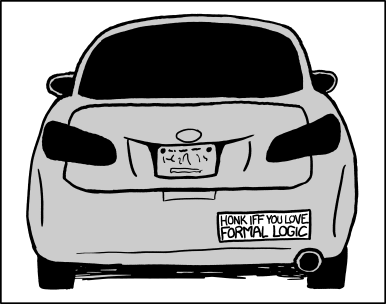
Over at his blog,
Whiskey Tango Foxtrot, Oscar, James Ala wrote this in response to
a comment I'd left at his site:
it really begs the question "why bother contesting for a leadership position if you are not going to lead?" From Poppy Bush onwards we have been inflicted with empty suits that captured the Executive as resume padding. It has been all about blind ambition linked to ego gratification; with no real desire to do the heavy lifting the job required. You can see the downward spiral from Pappy Bush, to Bill Clinton, to Shrub and, finally, to Obama.
Each iteration, each candidate, was ever more solipsistic, ever more nihilist, ever more ego driven, ever more the unprincipled political hack. Each was ever more the dog chasing the bus; totally lost when said bus ended up in the dog's possession.
I wish I was a systems engineer, or someone who could discern how systems work. I do not have the mental discipline or the framework to achieve that kind of analysis. I just know that our system of government, especially it's political process is fundamentally flawed. I keep looking at the results of the the process and keep being amazed on how badly it fails at delivering a more perfect union.
Going Along To Get Along
Since I am, or at least was, an engineer, let me explain the political system to you.
It's not a system.
At least, it's not in any sense that means anything. A system is designed to accomplish something, whether it's a documentation system, a refining system, or a computer system. Whether that something is making a project's design understandable, processing ore, or delivering porn and kittehs to your screen, the goals are clear enough that the people designing them can figure out how to accomplish them. What is the goal of our political "system"? Beyond electing candidates, I don't see any. We as individual voters set those goals, and as any thorough survey of the blogosphere will demonstrate, there is no universal agreement on what those goals are, nor even what categories of goals there might be.
I do, however, see an evolutionary process. Evolution isn't a system. It doesn't have any goals beyond surviving long enough to reproduce. As long as a type of organism can do that, it continues. There is no ultimate goal to achieve. There is no perfect ocelot or flawless poppy. There are only ocelots and poppies that survive long enough to spread their DNA around, and those that don't. That's how politics works, pretty much everywhere. Only the details, the environment if you will, are different.
And that's the little bit of understanding I can offer. Politics is an evolutionary process, and survival is getting and staying in office. Understand the environment, and the reasons politicians are the way they are will be more clear. From what I've noted, the politicians who are most successful are those who somehow manage to convince voters that they're all about whatever the voters are about, which usually entails not actually being about anything in particular. That's certainly Barack Obama's
modus operandi, and it appears to be Mitt Romney's, as well.
As any decent introductory biology test would tell you, biological evolution has two basic drivers - variation and natural selection. "Variation" is the ability of organisms to be somehow different from their parents. Mutation and sexual reproduction both create variation. "Natural selection" is the environment's job. The conditions that exist in an organism's environment determine whether it will survive long enough to reproduce. If the organism is able to produce offspring, its DNA is passed on.
In the area of politics, we the voters are the environment. The money, the news, the personalities, and all the other stuff that goes into shaping what the candidates offered do and believe, is the variation. Our choices as voters determine what politicians succeed and which ones don't. In the end, if voters choose their leaders for fatuous, self-centered reasons, then what we will end up with is fatuous, self-centered candidates.
This is why there's a
series here called "The Price of Freedom". It's about why it's important to understand the issues, to understand who the candidates are and what they really believe, and to not leave your thinking to the cool people on television or radio who, often as not, are
also in the business of telling you what you want to hear.
In the end, whatever we as voters choose is what we will end up with. If you
choose evil, you end up with evil. There are plenty of other choices available. If the ones the main parties offer aren't good enough, I'd suggest choosing the one who best represents what you want. If enough of us do that, the variation will change. The Tea Party proved that.
In this environment, if you select what you want, you might get it. If you don't, then you certainly will not.
Afterword: I think it should go without saying that the picture of Dr. Evil, a character in the
Austin Powers movies, is just a reference to something that's become a cultural icon. It does not represent an endorsement of this article by the producers, cast, or production staff of this movie.
The title of this article is, of course, the title of a bad
Star Trek episode. Still, like the
Enterprise crew members trying to survive on the same planet with Lee Meriwether's homicidal avatar, we seem to be stuck with a problem we can barely understand, let alone deal with intelligently. Needless to say, the creators of
Star Trek aren't in any way responsible for the contents herein.
It's humor. Get over it.























